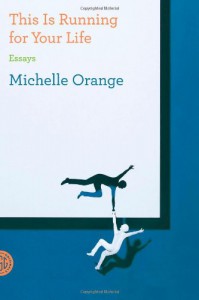
Brilliant essays! Massive in scope, sense, and the weaving of ideas. One in particular has grabbed me: It begins with a list of tourist preferences for visits to Hawaii ... and segues into the author's experience of a psychiatric conference that focuses on the upcoming DSM-5 (the American Psychiatric Association's Diagnostic and Statistical Manual, first published in 1952). Quotes:
~ Over its sixty-year history the manual has charted our changing relationship to what is considered normal--socially and individually, emotionally and behaviorally.
~ In seventeenth-century Europe the first pangs of globalization seemed to manifest in a Swiss doctor's diagnosis of nostalgia--Greek for "homesickness"--in students and soldiers who experienced crippling melancholy after time spent far from home.
~ By the time of the publication of the DSM-IV, in 1994, the number of diagnosable disorders had tripled, indicating a rate of about five new mental illnesses a year since they started keeping count.
~ ... the treatment for insanity [in the mid-1800s] reflected a belief in the connection between a rising rate of mental illness and a rapidly modernizing society. Remove the patient from a frenetic environment, the theory went, and [a person's] craziness would clear right up. [This holds true in practice ... and now, in 2013, we have made our world, and our expectations of how to live in this world, ever more frenetic. Are we crazy ... or have we been crazed?]
~ Early in the twentieth century it was war--specifically the connection of circumstance to psychiatric distress--that created a need for a classification system that existed outside the extremes of institutionalization. Having staggered off the battlefields of rural Europe, boys still shy of voting age were suffering in ways previously unknown to humankind (emphasis mine). It was a new reality, and homesickness didn't cover it. Advanced Weaponry--poison gases, machine guns, and artilery shells--was unveiled across trenches of massive, chaotic breadth. The First World War's seventy million soldiers had little relief from combat, incomprehensible carnage, and gruesome living conditions, and the result was psychic trauma on an unprecedented scale.
~ Beyond the homosexuality snafu [same-gender love was considered a "mental illness" until 1973, when it was expunged from the DSM], research had shown that the diagnostic process had reliability issues beyond what any legitimate medical practice would allow. If a patient walked into five different doctors' offices presenting the same set of symptoms, the odds that he would walk out with five different diagnoses were intolerably high.
~ ... we have adopted the language of war to describe the nature of modern well-being--how we fight and struggle and battle with ourselves, win and lose, face demons, destruct and rebuild ... [Especially interesting to note this prevalence of warrior-language in relation to the DSM's origin in military injury and trauma.]
~ Like every other late-twentieth-century capitalist enterprise, the mental health industry was soon in cancerous thrall to perpetual growth. (...) Outside of New Zealand, the United States is the only country in the world that allows [psychiatric drug] advertising, and millions of Americans were diagnosed by their television sets during the evening news or an episode of Road Rules.
~ ... as psychiatry continues to narrow its focus on the individual and his scientific profile, the whole concept of having a personality--a way of being formed symbiotically, over time and in relation to others--is politely being ushered to the land of the obsolete ...
~ What if we are masking the mysterious cause of so much spiritual and emotional suffering by calling it a psychiatric disease?


